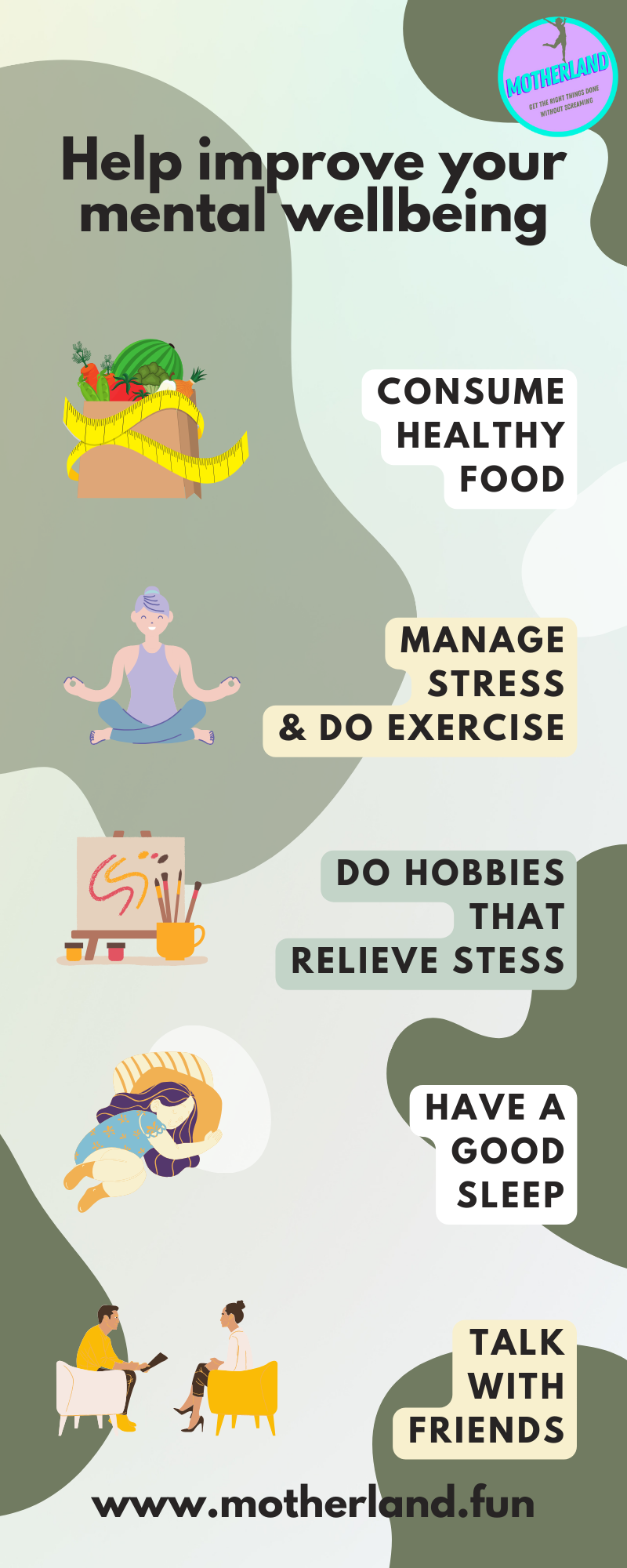Mental health
I wish mental health was just ‘health’, without the need to separate the issue into physical and mental. I hope we are heading in that direction but we’re not there yet
What does ‘mental health’ mean?
Mental health encompasses emotional, psychological, and social well-being, influencing cognition, perception, and behavior. According to the World Health Organization (WHO), it is a “state of well-being in which the individual realises his or her abilities, can cope with the normal stresses of life, can work productively and fruitfully, and can contribute to his or her community”.
What does good mental health mean?
I’m not wild about the wording of ‘good’ and ‘bad’, but it’s how lots of us think about mental health, rather than our mental health operating on a sliding scale, which is probably more realistic.
However, some examples of ‘good’ mental health are:
Confidence to express positive and negative words and thoughts (beware of toxic happiness!)
Recognising your helpful and unhelpful thoughts
Being present. Thinking about what might or might not happen in the future keeps you from appreciating what you have or what you're experiencing right now
What does bad mental health mean?
Again, I think people are becoming much more aware that mental health isn’t good or bad, but it’s more on a sliding scale.
Some examples of mental health experiences which are probably unhelpful are:
Looping thoughts. These can often be non-fact based, for example - 'I'm going to mess up the work presentation tomorrow'. Research shows that you can interrupt looping thoughts by doing something practical that challenges your brain. Do a crossword, or count to 400 in twos
Physical sensations like palpitations, shaking, shortness of breath. Sit down, drink some water and if you suspect anxiety is making a guest appearance, take a few minutes to breathe purposefully and deeply. If you think this is NOT anxiety, call 111 or 999
A tendency to jump to negative conclusions. For example - 'I'll never get a payrise' when you haven't had a payrise conversation. 'I can't lose weight' when you haven't tried to
Are mental health issues hereditary?
There are various schools of thought about mental health and genetics. Many genetics professionals are involved in ongoing projects to explore the relationship between genetics and health.
Separate to genetics is the topic of learned behaviours and habits, which are often borrowed from those we go up around. This is a hugggge topic with a lot of resources available on its many many perspectives, I’m aiming to develop some downloadable resources to help you in this area soon.
Are mental health problems increasing?
For a really, really long time, people have been rejected for honestly expressing emotions or difficulties.
Think about the ‘stiff upper lip’ or similar sayings associated with being “British”; unemotional and resolute. These can certainly be commendable characteristics in certain situations and experiences, but bottling things up all the time is rarely healthy or helpful.
Or what about “man up”, the outdated quip intended to immediately stop someone displaying their emotions or struggles, especially men. “Man up” implies that showing emotion or struggling in a situation is “bad” and something that “real men” don’t do. I’m cringing while writing that, and I hope it really is a saying that’s on its way out, because it’s immensely unhelpful.
These are just two examples of how in the not too distant past, people were absolutely discouraged and even forbidden from opening up about emotional struggles, or talking to someone about their worries. They would be shamed, criticised and shunned, just for being brave enough to be honest.
Mental health issues may be becoming more commonplace, but it could also be the case that talking about mental health is becoming more normalised and encouraged, so people are less terrified of speaking up or seeking help.
Can mental health affect physical health?
Yes, absolutely!
Have you heard of the term somatic health? It’s a growing body (pun intended!) of health professionals who use the mind-body connection for movement. While the idea appeared in the 70s in the Western world, it has lots of Eastern influences. Yoga is an example of a somatic practice.
How to improve your mental health
tcIt sounds cheesy, but just talking to someone about things you’re keeping to yourself that are troubling you can be an absolute gamechanger.
Talking to a trusted friend who will listen is perhaps the easiest thing to do first for a lot of people.
Talking to a qualified mental health professional such as a therapist can often be arranged through private health insurance, or you can self refer yourself for NHS talking therapies.
There are many different types of therapy available, including:
Acceptance and Commitment Therapy (ACT) – uses mindfulness skills to help people live and behave in ways consistent with their personal values, while developing psychological flexibility.
Cognitive Behavioural Therapy (CBT) – a talking therapy that helps people understand and change their thoughts, feelings and behaviours.
Dialectical Behavioural Therapy (DBT) – DBT is based on CBT and is adapted for people who feel emotions intensely. Dialectical means trying to understand how two apparently opposing ideas can both be true.
EMDR (Eye Movement Desensitisation and Reprocessing) – a powerful, scientifically proven methodology to help people to recover from trauma and traumatic events. The EMDR Association has a great video overview about EMDR here.
Physical activity can be a great way of distracting your mind from overthinking or repetitive thinking, and even just doing an alternative activity to distract your brain can help – for example, doing a crossword, or doing some mental arithmetic, saying a riddle over and over or knitting. These practices need your brain to engage in them, which means that it can’t continue its repetitive thoughts all the time you pre-occupy it in a constructive activity.
Sleep is also, thankfully, becoming more precious and appreciated, and less like something that tough people or high performers can do without because they’re too busy for sleep.
A good night’s sleep is widely reported as being one of the best self care acts you can prioritise and a key contributor to a healthy mind.

When mental health affects work
Advice on what to do varies hugely, from detach your mind from work and crack on, through to offload to your manager and tell them all your feelings; and everything in between.
It’s totally your choice when considering what your options are and which you want to take. There are probably many factors to take into consideration when you’re wondering whether, or how, to talk to your employer if you’re struggling with mental health.
If you’re worried about bringing up mental health at work, or don’t know what to say, it’s worth confiding in an HR professional for some off the record advice, or ACAS if there’s nobody at work you want to start a conversation with.
However you approach opening up about your mental health at work, it’s really important that you appreciate that you absolutely have the right to discuss your mental wellbeing in a confident and respectful environment.
Ready to Make a Change?
Book your free discovery call now to find out how coaching can transform your life
Testimonials
What Motherlanders Are Saying
“My reiki session with Sarah was so relaxing and I had some colour reactions which were fascinating. I came away from the treatment feeling calm but also energised. Sarah was relaxed yet professional and I wouldn’t hesitate using her again for future reiki treatments.“
“Sarah’s a brilliant coach, so helpful & enthusiastic. Really builds you up and gives you the courage to live the life you want. I’m a very busy working single mum, and she’s brilliant at coming up with tips to work around my life, helping me to make better choices. Sarah has helped me to understand that you can’t care for others without caring for yourself. She’s so warm and friendly, you can’t fail to feel supported and that she’s got your back.”
“Sarah was so brilliant to work with! She gave me sensible guidance around improving both my physical and mental health that fitted with my life rather than trying a one size fits all approach. She has a calm and practical attitude mixed with natural empathy. Sarah is a breath of fresh air and she provides a non-judgemental space for you to self develop (but with her fab expertise on hand!) I thoroughly recommend working with Sarah.”
Our Blog
Latest Articles
Why is HRT in short supply in the UK?
Around 13 million women in the UK are either peri menopausal or menopausal. Peri menopause and menopause can come without any symptoms, or with all the symptoms. You might not experience peri menopause and have no menopause symptoms apart from the absence of periods....
How to love yourself
When you think of loving yourself, do you start singing the Divinyls' 1991 hit, 'I touch myself', or say something in a sort of primary school tone of voice about loving yourself? No? Ummm no me neither. Self love can sound a bit cringe, or very cringe, to lots of...
Overwhelm and anxiety in peri menopause
Peri menopause is the transition period to menopause and it can creep up on you slowly, with an almost infinite number of symptoms. They might show up slowly over time, typically from your 40s onwards, and can give you the distinct feeling that you just don't...
Ready to Make a Change?
Book your free discovery call now to find out how coaching can transform your life
